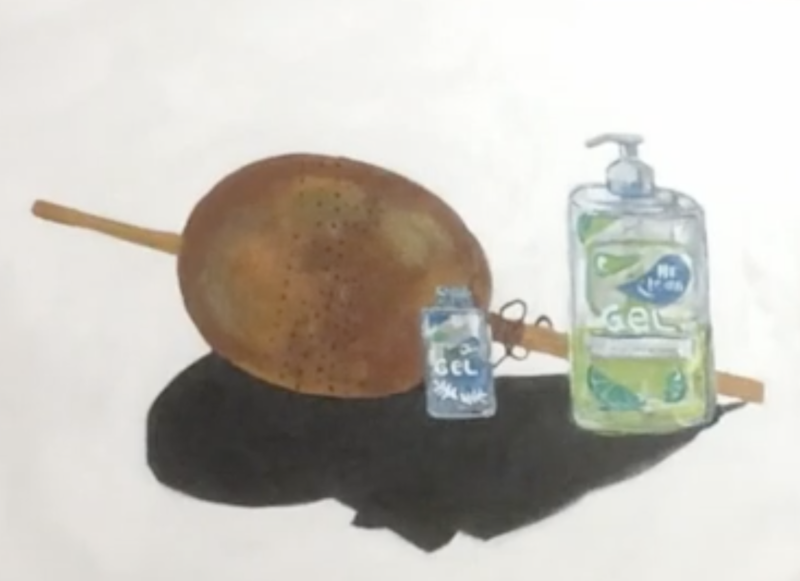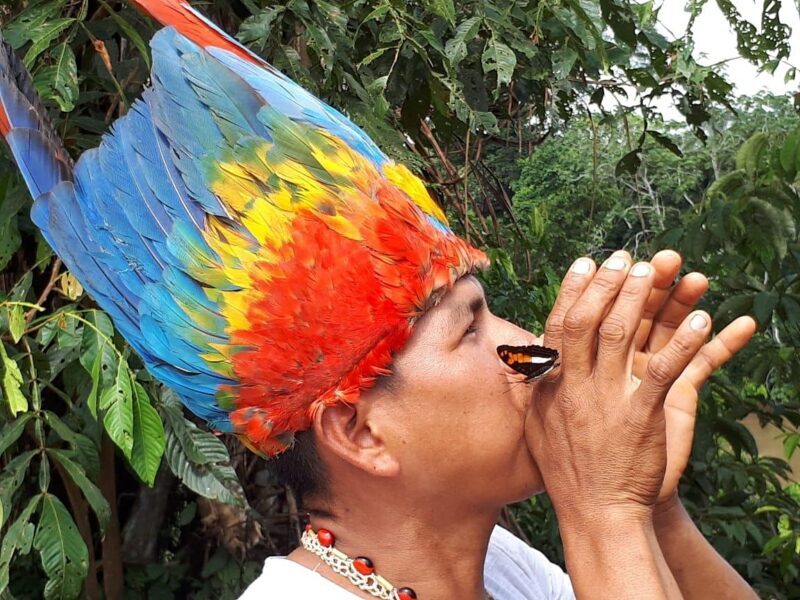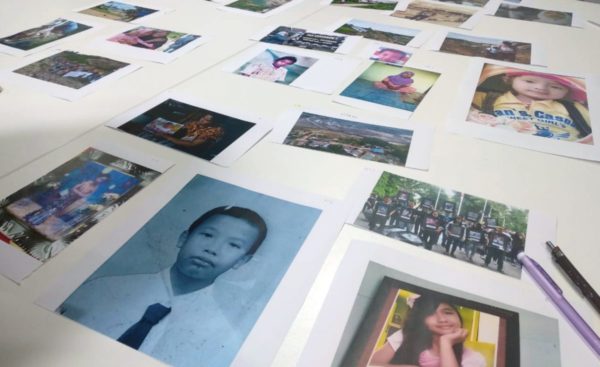WEGO

BRAZIL:
ONCA has shown works by a number of indigenous Brazilian artists including Denilson Baniwa, Jaider Esbell and Edgar Kanayko Xakriaba in the gallery and online. We have participated in international projects of solidarity and artist support including Um Outro Ceu and Cultures of Anti-Racism in Latin America (CARLA). The following links are brought together here to offer ways to access their works and learn about the artists’ work and the challenges faced by their communities.
After the CARLA conference at University of Manchester, which showcased ways in which artists in Argentina, Brazil and Colombia address racial diversity and use their art to challenge racism and deeply entrenched racial inequality, Indigenous Brazilian artist Arissana Pataxo and scholar Felipe Milanez spoke at an event co-hosted by ONCA and University of Sussex. This is the transcript of Felipe’s talk, in which he discusses resistance to Bolsonaro, corruption, COVID, genocidal intent and action against Indigenous people, movement building, art and the role of Indigenous artists in the contemporary movement for social and ecological renewal and re-imagining.

CAMBODIA:
These connections with Brazil emerged through ONCA’s partnership work on the Atmospheres of Violence research project led by Dr Mary Menton, in which the resistance and creative practice of frontline communities in Brazil, Cambodia and Bangladesh was celebrated through an art exhibition, whilst the multiple forms of violence they face were explored and documented. Later, Claudelice Santos from the Zé Claudio and Maria Institute (Brazil), activists from the Cambodian Youth Network and campaigners from sites of resistance along the route of the HS2 railway in England came to speak and share their films at Atmospheres of Resistance, a COP26 Fringe event co-hosted by ONCA and Not One More.

COLOMBIA:
Peoples such as the Yukpas in Colombia have a unique and long trajectory of resistance to the activities of corporations with headquarters in London promoting extractivism in the Global South, violating human and ecological rights. Their first hand experience is invaluable in the struggle for justice through strategic litigation, yet often they face severe threats and difficulties for resisting transnational corporations. The Resisting Killer Corporations talk and workshop, hosted by Colombian youth justice advocate Helena Müllenbach Martinez and University of Sussex’s Centre for Global Political Economy, featured inspirational movement leaders including Gilberto Torres and Sebastian Ordoñez Muñoz exploring the strategic use of litigation and international solidarity to amplify anti-extractivist struggle.

ECUADOR:
ONCA hosted the premier of the film Sacha Taki (Songs of the Forest) made by members of the Pueblo Ancestral Kichwa Kawsak Sacha (PAKKS) forest community in Ecuador, in collaboration with international researchers including Sussex Humanities Lab’s Experimental Ecologies initiative. The film explores the PAKKS’ transcendental ecological forest sound-centred cosmovision. The event featured a panel discussion with PAKKS community representatives, translated by Kichwa environmental justice activist Paccha Turner Chuji.

BOLIVIA:
ONCA is a long-term supporter of Comunidad Inti Wara Yassi, founded by Nena Baltazar, a series of reserves in the Bolivian Amazon dedicated to the rescue, rehabilitation and care of illegally trafficked wild animals and birds.

PAKISTAN:
As part of a series of events raising funds for Women Democratic Front in Pakistan after the catastrophic flooding in autumn 2023, ONCA and Nichola Khan Director of Brighton University’s Centre for Spatial, Environmental and Cultural Politics co-hosted a panel discussion exploring the systemic drivers of climate change and socio-economic injustice in Pakistan.

INDONESIA:
In collaboration with the WEGO network of researchers into feminist political ecologies, ONCA hosted Extracting Us, an exhibition on feminism, politics and coal extraction which sought to ‘look differently’ at the politics of coal extraction, taking an intersectional approach and bringing together feminism, ecology, climate change and politics. Following on from this gallery exhibition, the network co-curated a larger online exhibition of works from artists and scholar-activists working in a range of front-line contexts in Brazil, Tajikistan, Northern Ireland, Papua and elsewhere. The latest iteration of the project, Despite Extractivism, is viewable online.

BORNEO:
ONCA has collaborated twice with Bornean artist Deru Anding whose large black and white ink drawings evoke in detail the forest and community where he grew up. Deru now lives and works as an architect and artist in London, but he was born and raised amongst the Bidayuh Tribe in the jungle of northwest Borneo. Over the past two decades, 75% of Deru’s homeland has been destroyed for palm oil plantations, logging, and other developments. Generations, our first exhibition of Deru’s works, curated by Susuana Amoah, was held alongside talks and workshops that explored intergenerational and transnational justice including an evening with members of Wretched of the Earth.
The next time we showed Deru’s works was as part of Beyond Ruin, a group exhibition for Lost Species Day 2020 in which they were exhibited alongside works by artists Felipe Jacome from Ecuador and Denilson Baniwa from Brazil, as well as the UK.







